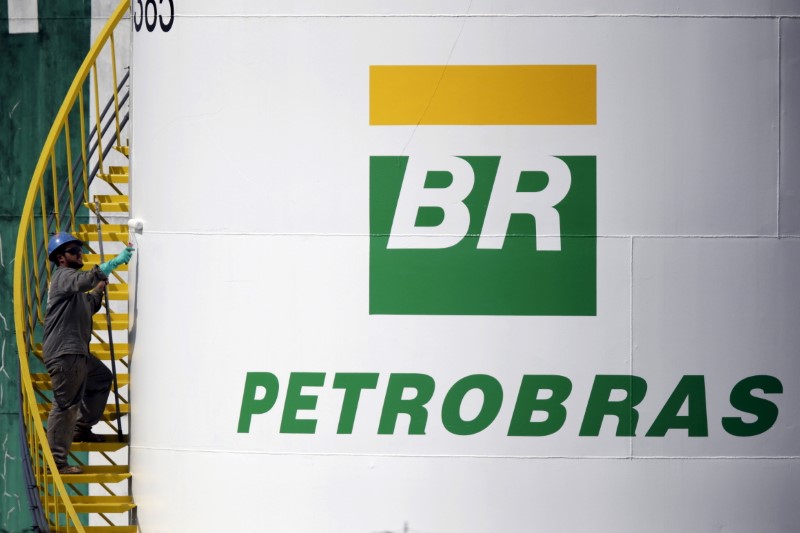By Jarrett Renshaw
(Reuters) - After years of running flat out, U.S. Gulf Coast refiners are lining up repairs to plants in 2017 - but facing a severe labour shortage that could delay work, drive up costs and raise accident risks.
Fuel producers such as Marathon Petroleum Corp (N:MPC) and Valero Energy Corp (N:VLO) have delayed routine work in the past 24 months amid high margins. Those margins collapsed this year in a global fuel supply glut, providing an incentive for refiners to undertake the shutdowns necessary for maintenance.
But refiners are now competing for pipe fitters and ironworkers with a host of billion-dollar energy projects, including Cheniere Energy's (A:LNG) liquefied natural gas export terminals and a new petrochemical unit for Dow Chemical (N:DOW).
Without undertaking the work they need, refineries run the risk of more unscheduled outages at plants. Plant shutdowns can disrupt fuel supplies and are closely tracked by oil traders because they directly affect demand for crude and supply of fuel.
"Putting off work definitely affects the safety of the refinery," said Ed Lee, an independent refinery safety consultant who worked at Royal Dutch Shell (L:RDSa) for three decades.
Refiners can mitigate the risks - but at a cost, by slowing output or avoiding types of crude that are difficult to process, Less said.
In recent months, a spate of unexpected outages have hit refineries nationwide, taking hundreds of thousands of barrels off the market and boosting gasoline prices and margins.
U.S. refiners are expected to spend $1.26 billion on planned maintenance next year, up 38 percent from this year and the highest level since at least 2010, according to Industrial Information Resources (IIR), which tracks labour supply for refiners and other industrial companies.
Many will struggle to execute those plans, said Anthony Salemme, a vice president at IIR.
"Refiners are going to have trouble finding even the lowest skilled workers, such as scaffold builders, and you can't do work at a refinery without a scaffold," Salemme said. "That's going to complicate scheduling and even extend outages."
FEW WORKERS, MANY PROJECTS
IIR estimates that the coastal region from Brownsville, Texas to New Orleans - the largest U.S. refining region - will be short roughly 37,400 craftsman needed to complete all of the planned capital projects in 2017.
"We are definitely feeling the labour shortages in skilled craft labour," said Paul Tooze, construction manager for the oil, gas and chemicals business at Bechtel, one of the world's largest industrial contractors.
Tooze said the company spends a lot of time and money to attract and retain employees, but still has to bring in workers from other regions to complete projects. That typically requires $100-per-day travel allowances that drive up project costs.
Bechtel employs between 40 percent and 70 percent workers requiring daily allowances on their Gulf Coast projects, Tooze said.
The shortage will be most acute in Lake Charles, Louisiana, the home to several refineries and petrochemical plants. There, South African energy firm Sasol (J:SOLJ) is investing billions on a chemical project, and the call on labour for the plant is one of the reasons the area will be short more than 18,000 workers in 2017, according to IIR.
Sasol raised its cost estimate on the project in August by 25 percent to $11 billion, in part due to rising labour costs.
Chevron Phillips – the joint venture between Chevron (N:CVX) and Phillips 66 (N:PSX) – is spending $6 billion on building a petrochemical units in Baytown and Old Ocean in Texas. Labour costs would drive the projects' costs up 10 percent from previous expectations, Phillips 66 President Tim Taylor said in an earnings call earlier this month.
Fluor (N:FLR), one of the world's largest industrial contractors, took a $154 million charge on the plant in November due to cost overruns, including labour.
Earlier this year, Fluor opened a skilled craft training centre in the Gulf Coast, stating that while the firm could not train its way out of the shortage, it hope to alleviate the problem.
COMPETITION FROM MANUFACTURERS
Refiners are also competing for workers with a broader range of power companies, pharmaceutical firms and industrial manufacturers nationwide, which are also preparing for a spike in maintenance projects in 2017, according to IIR.
In the southwest region that includes Texas, Louisiana, Oklahoma and Arkansas, IIR counted 952 planned projects among the various groups it tracks, the most since at least 2010 and a 24 percent increase from this year.
A recent survey conducted by the Associated General Contractors of America found that 74 percent of Texas contractors are having trouble filling hourly craft worker positions, and a majority of them believed they would continue to struggle over the next year.
More than 60 percent of the respondents said they bumped up salaries to attract more skilled craft workers.
"These shortages have the potential to undermine broader economic growth by forcing contractors to slow scheduled work or choose not to bid on projects, thereby inflating the cost of construction," said Stephen Sandherr, head of the Associated General Contractors.
